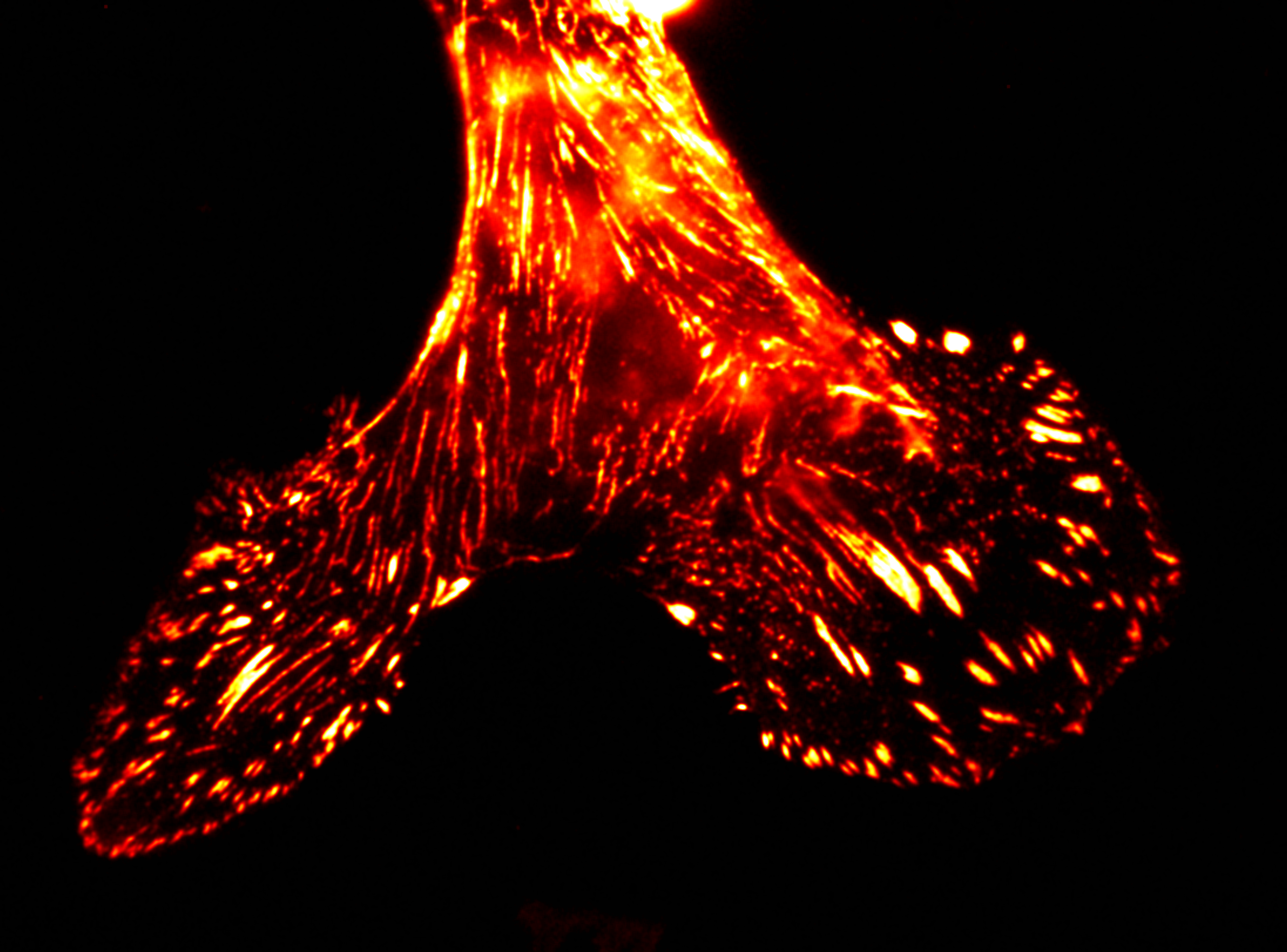
Institut Jacques Monod
Présentation
The overall goal of the research groups is to understand the fundamental processes contributing to the structure, dynamics and functions of eukaryotic cells. Different cellular components are studied (nuclei, transport vesicles, mitochondria, cytoskeleton etc), their assembly, regulation, signalling pathways and their roles in determining cell shape, motility, proliferation, tissue organization and development, in both normal and pathological conditions.
Some groups study the genetic, cellular and molecular mechanisms that underlie animal development, in particular those that control the formation of the nervous system. They also study the evolution of developmental processes.
Other teams are interested in the regulation of DNA and protein metabolism. This includes fundamental processes of genome maintenance such as the control of DNA replication and damage repair; transcriptional regulation; nucleo-cytoplasmic trafficking and regulation of cellular trafficking by ubiquitylation; protein processing, folding and export.
In the first transverse perspective, several teams develop new theoretical and/or practical approaches to gain a better understanding of the molecular and cellular bases of rare diseases (genetic diseases) and more common affections (cancer, diseases of reproduction, autoimmune diseases etc.).
Finally, in the second transverse perspective some groups are actively engaged in research and development of novel methods and resources in mathematical modelling and biophysical analysis of biological objects and phenomena.
Belongs to SdV sector :
- The basic elements of living organisms
- The assembly of living organisms
- The survival and defense of living organisms
Thèmes de recherche
The IJM pursues basic research within three major themes :
♦ Genome and chromosome dynamics
♦ Cellular dynamics and signalling
♦ Development and evolution
Furthermore two transverse themes consist in :
a) Modelling, quantitative biology and biophysics
b) Molecular and cellular pathologies.
Methods : In-vivo and in-vitro approaches in model systems such as : yeast, drosophila, zebra fish, mouse, rat. Genetics, cellular and molecular biology (transcriptomics, proteomics, flow cytometry, cellular imaging).
Equipes de recherche
TEAMS :
-Equipe 1 : Juliette Azimzadeh (Polarité cellulaire dans le développement et l'évolution)
-Equipe 2 : Guillaume Balavoine/Michel Vervoort (Évolution et développement des métazoaires)
-Equipe 3 : Giuseppe Baldacci (Pathologies de la réplication de l'ADN)
-Equipe 4 : Nicolas Borghi ( Mécanotransduction : de la surface de la cellule à son noyau)
-Equipe 5 : Jean-Michel Camadro (Mitochondries, métaux et stress oxydatif)
-Equipe 6 : Jérôme Collignon (Spécification des destins cellulaires chez la souris)
-Equipe 7 : Valérie Doye (Fonctions non-conventionnelles des pores nucléaires)
-Equipe 8 : Sandra Duharcourt (Régulation épigénétique de l'organisation du génome)
-Equipe 9 : Julien Dumont (Division cellulaire et reproduction)
-Equipe 10 : Thierry Galli (Trafic membranaire normal et pathologique)
-Equipe 11 : Thierry Grange/Eva-Maria Geigl (Épigénome et paléogénome)
-Equipe 12 : Antoine Guichet ( Polarité et morphogenèse)
-Equipe 13 : Cathy Jackson/Jean-Marc Verbavatz (Dynamique des membranes et trafic intracellulaire)
-Equipe 14 : Isabelle Jupin (Virologie moléculaire)
-Equipe 15 : Roger Karess (Dynamique et régulation de la division cellulaire)
-Equipe 16 : Benoît Ladoux/ René-Marc Mège (Adhésion cellulaire et mécanique)
-Equipe 17 : Sébastien Leon (Trafic membranaire, ubiquitine et signalisation)
-Equipe 18 : Domenico Libri (Métabolisme et fonction de l'ARN dans le noyau)
-Equipe 19 : Nicolas Minc (Organisation spatiale de la cellule)
-Equipe 20 : Virginie Orgogozo (Évolution des drosophiles)
-Equipe 21 : Khashayar Pakdaman (Biologie computationnelle et biomathématiques)
-Equipe 22 : Alessandra Pierani (Génétique et développement du cortex cérébral)
-Equipe 23 : Lionel Pintard (Cycle cellulaire et développement)
-Equipe 24 : Anne Plessis (Développement, signalisation et trafic)
-Equipe 25 : Françoise Poirier (Morphogenèse, homéostasie et pathologies)
-Equipe 26 : Marie-Noëlle Prioleau (Domaines chromatiniens et réplication)
-Equipe 27 : Vanessa Ribes (Réseaux transcriptionnels et différenciation neurale)
-Equipe 28 : Guillaume Romet-Lemonne (Régulation de la dynamique d'assemblage de l'actine)
-Equipe 29 : Terence Strick (Nanomanipulation de biomolécules)
-Equipe 30 : Reiner Veitia (Oncologie moléculaire et pathologies ovariennes)
